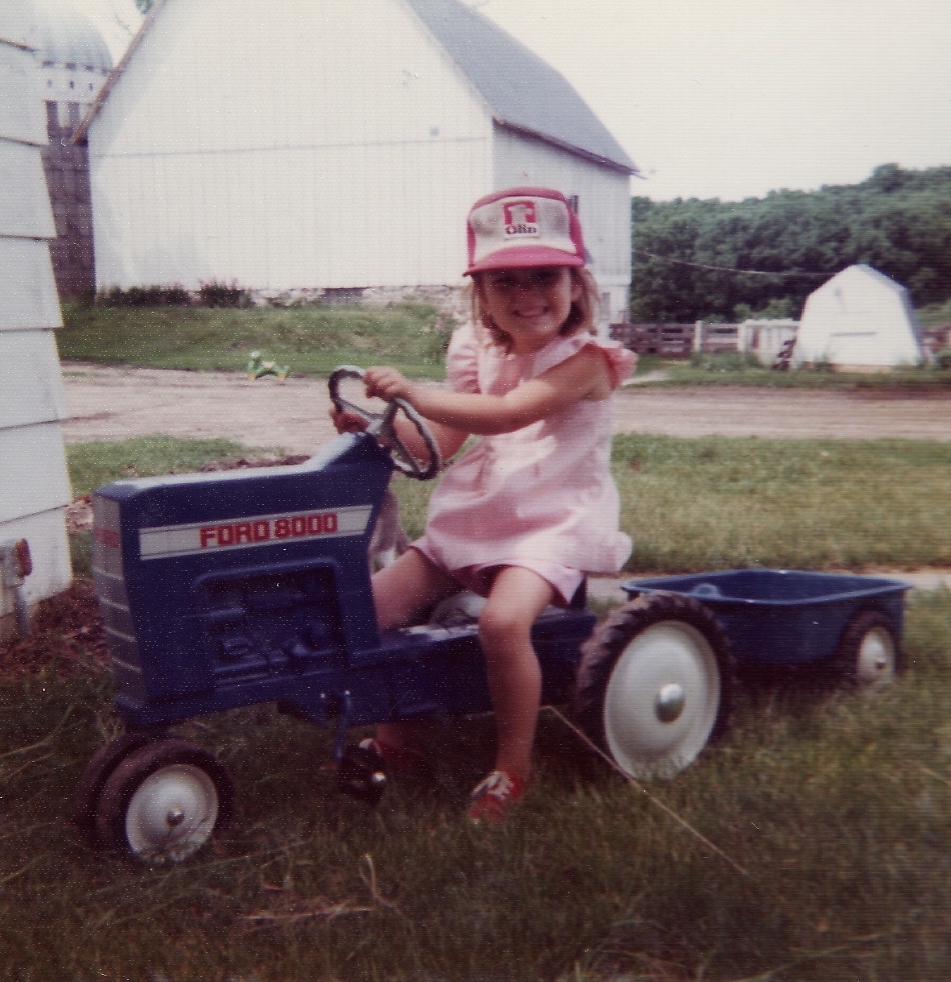I was driving through town with my 15-year-old daughter the other day when she pointed out a bumper sticker that read, “Hauling Ass & Sucking Gas.” If you’ve never had the pleasure of meeting her, our daughter is an intelligent, sharp-witted young woman. If you HAVE had the pleasure of meeting her, you’d also know she prefers rather to-the-point commentary. “And I suppose they think that’s a good thing?” was her follow-up. I glanced at the vehicle with the bumper sticker in question. It was a 70’s era Ford F250, lovingly restored and painted a garish (although completely appropriate) burnt-umber orange that would have gone beautifully with the avocado-green kitchen appliances of my childhood. The driver looked like he might have been straight out of the 1970’s as well, with long hair and big, 70’s style glasses. He and his truck were a sight to behold. (It really was a great looking truck!)
I laughed a little at the scene and my daughter’s comment. “Maybe he’s nostalgic for a by-gone era,” I guessed out loud. That’s when I looked closer at the driver. Was he about my age? Could he have lived through the 70’s or was he much younger and simply emulating an aesthetic? “Funny thing is, if he really did remember the 70’s, he’d also remember the energy crisis, the long lines at the gas pumps, and how all of America demanded fuel-efficient cars.” I said. “We went from a nation of gas-guzzlers to economy cars virtually overnight! If you lived through that…how could you forget it?”
But nostalgia is funny that way. It’s where fantasy and memories collide. Nostalgia gives us warm, fuzzy feelings for when everything seemed easier and trouble-free. Pesky details are all but forgotten.
Born in 1970, I am indeed a child of the 70’s. In fact, I am an unapologetic lover of nearly all 70’s music. Whether I’m mowing the lawn or making gelato, my go-to music station is the BJ Thomas channel on Pandora. Filled with the Carpenters, John Denver, and Glen Campbell, listening takes me back to my carefree childhood home filled with music. My dad spent the latter part of the 60’s playing in blues bands in Memphis, and shared with me his love of Aretha Franklin, Sam and Dave, and John Lee Hooker. My mother had a penchant for the folksy stuff, and we spent many hours listening to Harry Chapin, Jim Croce, Barry Manilow and Anne Murray. The lyrics of these songs are tattooed in the recesses of my brain. When I want to forget about the troubles of the world, I’ll flip to that channel and happily sing along…much to the horror of my children!
But as much as my inner 6-year-old likes to think of that era as happy and uncomplicated, I know it was not. I remember glancing at my mother as we watched the nightly news, tears welling up in her eyes as the names of soldiers lost in Vietnam scrolled by. Political and racial turmoil, economic crises, coups d’état, natural disasters, and terrorist attacks were all very real—and deserve to be remembered, lest they be repeated. In other words, nostalgia—without a reality check—can be dangerous.
Food and farming are not immune to nostalgia, either. But consumers and farmers are nostalgic for completely different things. Consumers long for a time when farming was simpler—before big machines, sprawling corporate farms and chemical sprays—when farmers in overalls coaxed vegetables from the earth like dirt whisperers.
But ask any farmer whether they’d go back 20, 30, or even 40 years, giving up their modern equipment or technology. GPS, seed improvements, and robotic milkers have made a world of difference in farmers’ lives. Farmers have breeding apps on their iPhones, satellite imagery on their computers, and smart tractors—all tools that help them use time and natural resources more efficiently. They’re grateful for the latest technological advances that allow them to get more done with less help, and reap more bushels per acre with fewer passes of the cultivator, less fuel for the tractor. No, farmers aren’t particularly nostalgic about the way they used to farm a generation ago.
But farmers are nostalgic—and rightly so—for better prices, or at least lower input costs. They’re nostalgic for a time when they were paid what their goods were worth. Farmers receive virtually the same prices today for their meat, milk, and vegetables that they received in the 1970s. They’re even nostalgic for a time when there simply were more farmers around. Farming is a lonely business anyway, but fewer and fewer people seem to be doing it…and finding help when you need it can be an exercise in futility.
Some farmers and food producers have bridged that gap by marketing the nostalgia consumers crave. (It’s all over the grocery store if you know how to look for it.) You could even say our farm does this to some extent. We are highly seasonal, extremely small scale, and we do all the work ourselves, including selling directly to the end consumer. Others farm with horses, or perhaps choose not to use genetically modified seeds and man-made chemical sprays. These are all choices individual farmers make based on their market (who they sell to) and whether or not these choices fit into their system and skill-set.
Now, time to listen to some Captain & Tennille and get some work done!
